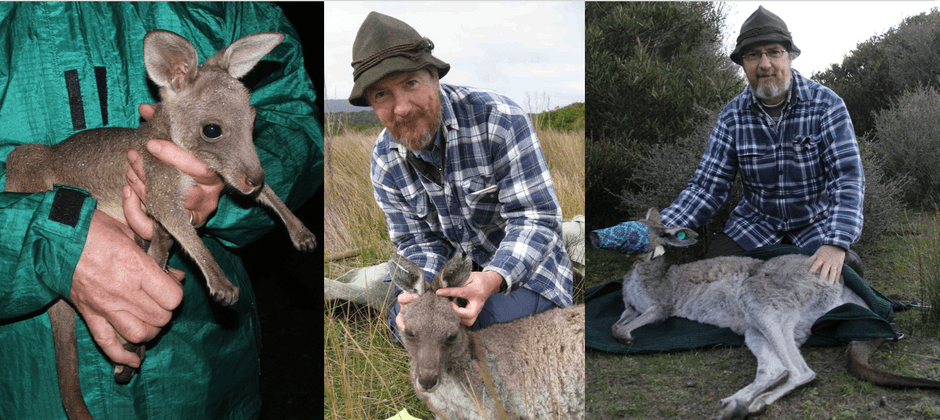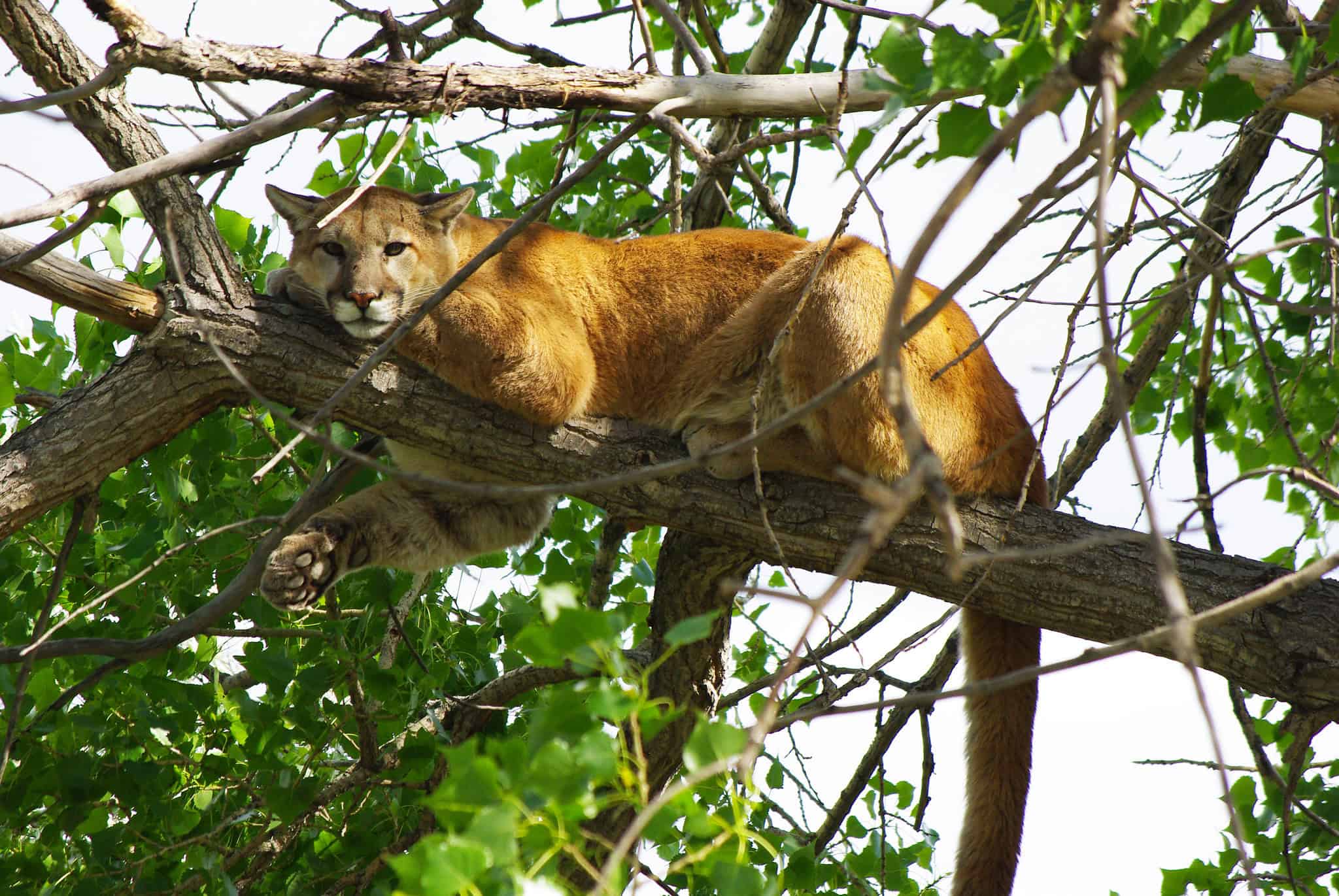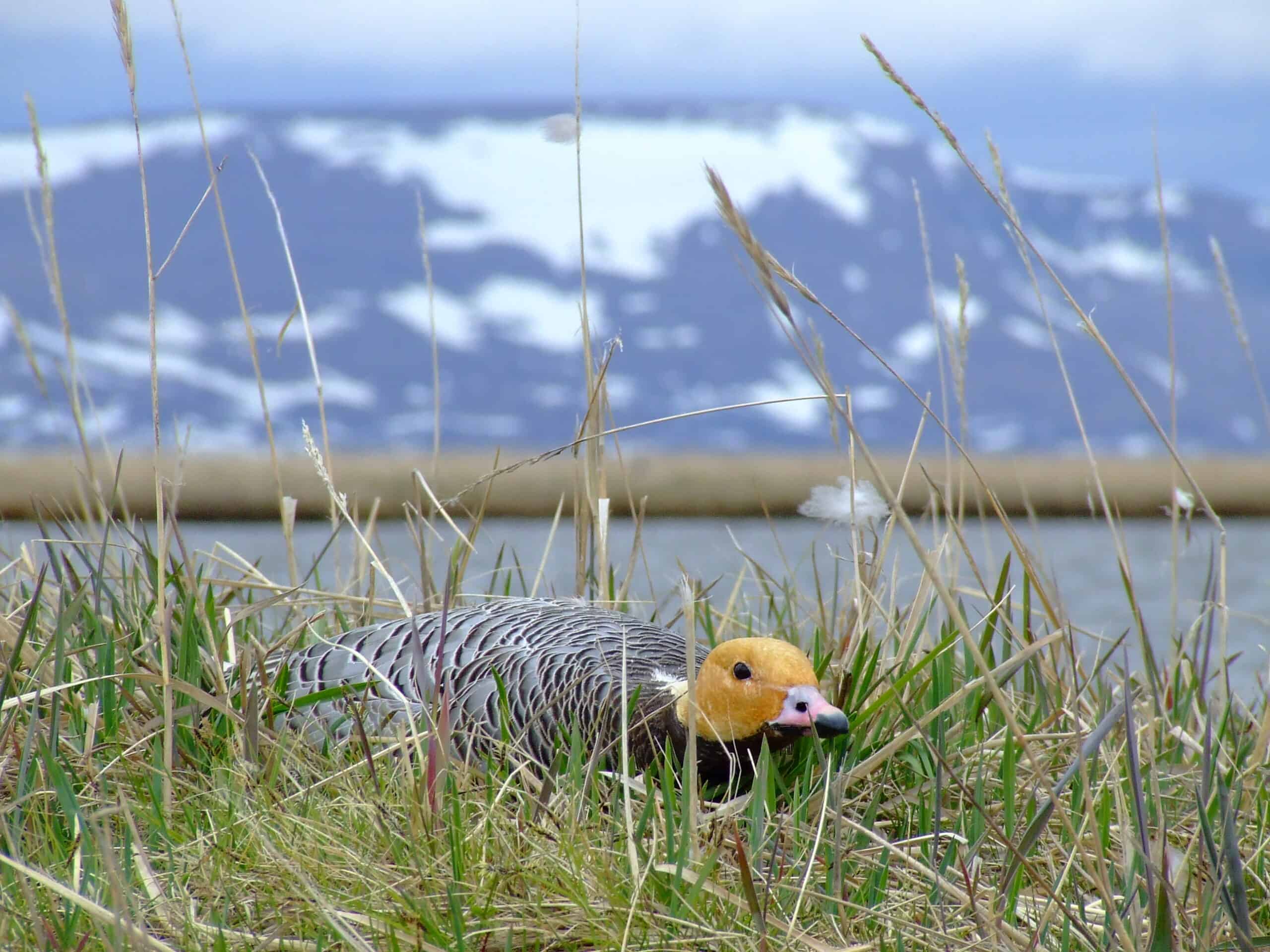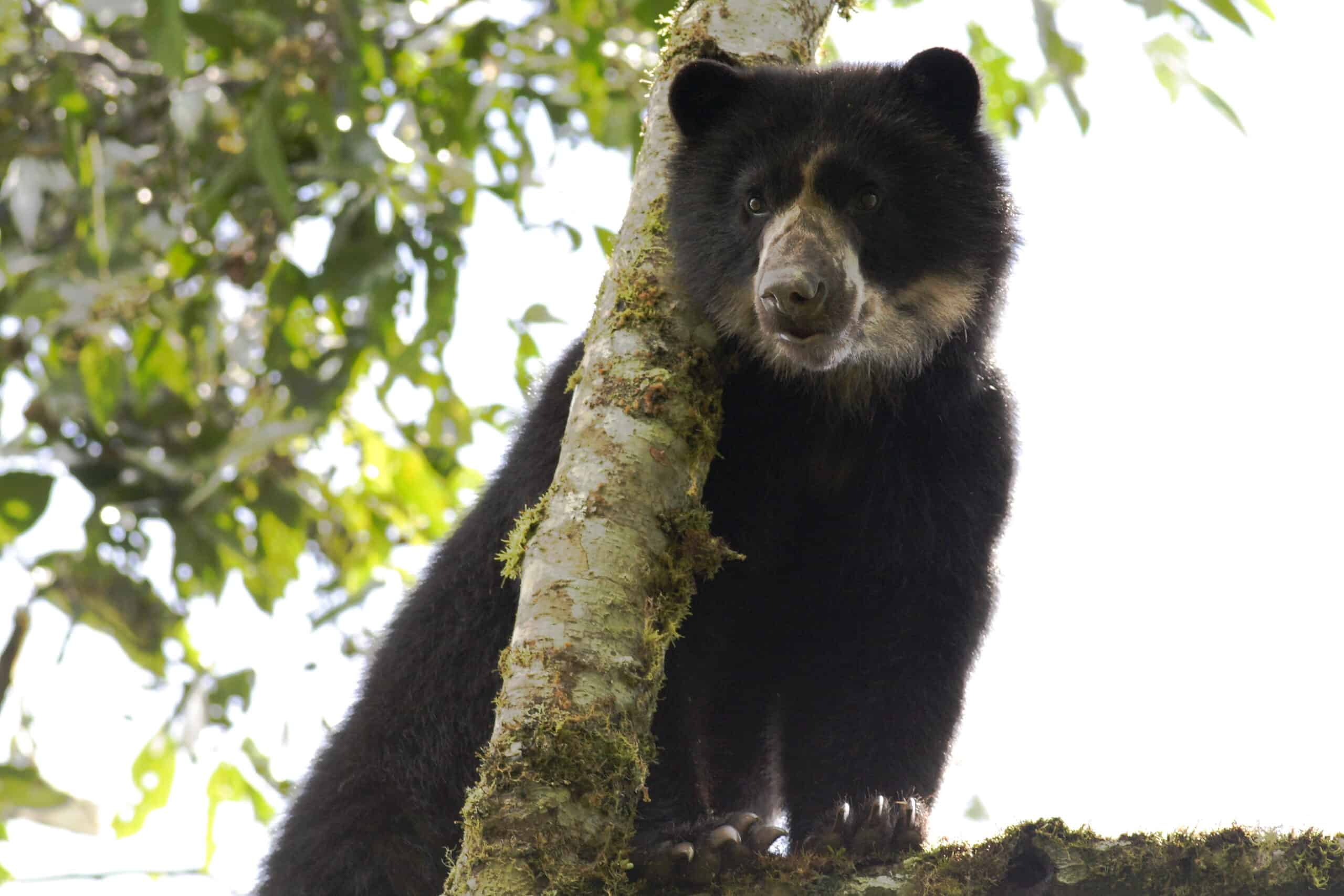Share this article
Marco Festa-Bianchet receives award for long-term monitoring work
Marco Festa-Bianchet has had his fair share of challenges while conducting fieldwork to monitor long-term changes in populations of large mammals. He’s ventured out in the snow in minus 5-degree Celsius degree weather to measure bighorn sheep in Alberta and chased kangaroos in Australia while getting harassed by tiger snakes (Notechis scutatus).
But his hard work has paid off, uncovering information about factors influencing reproductive success and other wildlife population dynamics.
Not only can that information be used for conservation and management, it has also earned Festa-Bianchet the Canadian Section of The Wildlife Society’s Ian McTaggart-Cowan Award at the recent Canadian Section Annual General Meeting.
The award, named after a past TWS president and recipient of the TWS Aldo Leopold Award, recognizes individuals who have made outstanding contributions to the understanding, conservation and/or management of wildlife in Canada throughout their career. Recipients receive free registration to the conference and a $1,000 travel award to attend the meeting.
Festa-Bianchet, a professor and head of the biology department at the University of Sherbrooke in Québec, started contributing to the field of large mammal conservation when he just finished his undergraduate degree at the University of Alberta in 1981. When he started his master’s researching ground squirrels, he soon got pulled in a completely different direction beginning a four-month contract working on pneumonia in bighorns (Ovis canadensis) at Sheep River in Alberta. He later earned his PhD at the University of Calgary in 1987 and was a NATO Science Postdoctoral Fellow in the Large Animal Research Group Cambridge, U.K.
His research has taken him all over the world, from studying mountain goats (Oreamnos americanus) and caribou (Rangifer tarandus) in Canada, to researching eastern gray kangaroos (Macropus giganteus) in Australia, to learning about ibex (Capra ibex) in Italy. He has found that large animals are so long-lived that it can take a while to learn long-term trends about them. “If we’re interested in wildlife population dynamics, we need long-term data to assess variability, and understand that the drivers of population dynamics change over time,” said Festa-Bianchet, who has been a TWS member for about 15 years.
Predation may be a strong influence one year, while disease is the prominent one the next, he added. For example, he learned that during some years, individual cougars will specialize on preying on mountain goats or bighorn sheep. In addition to direct mortality, frequent predation attempts cause a stress response leading to indirect effects such as lower reproduction. In most years, however, cougar predation is completely absent.
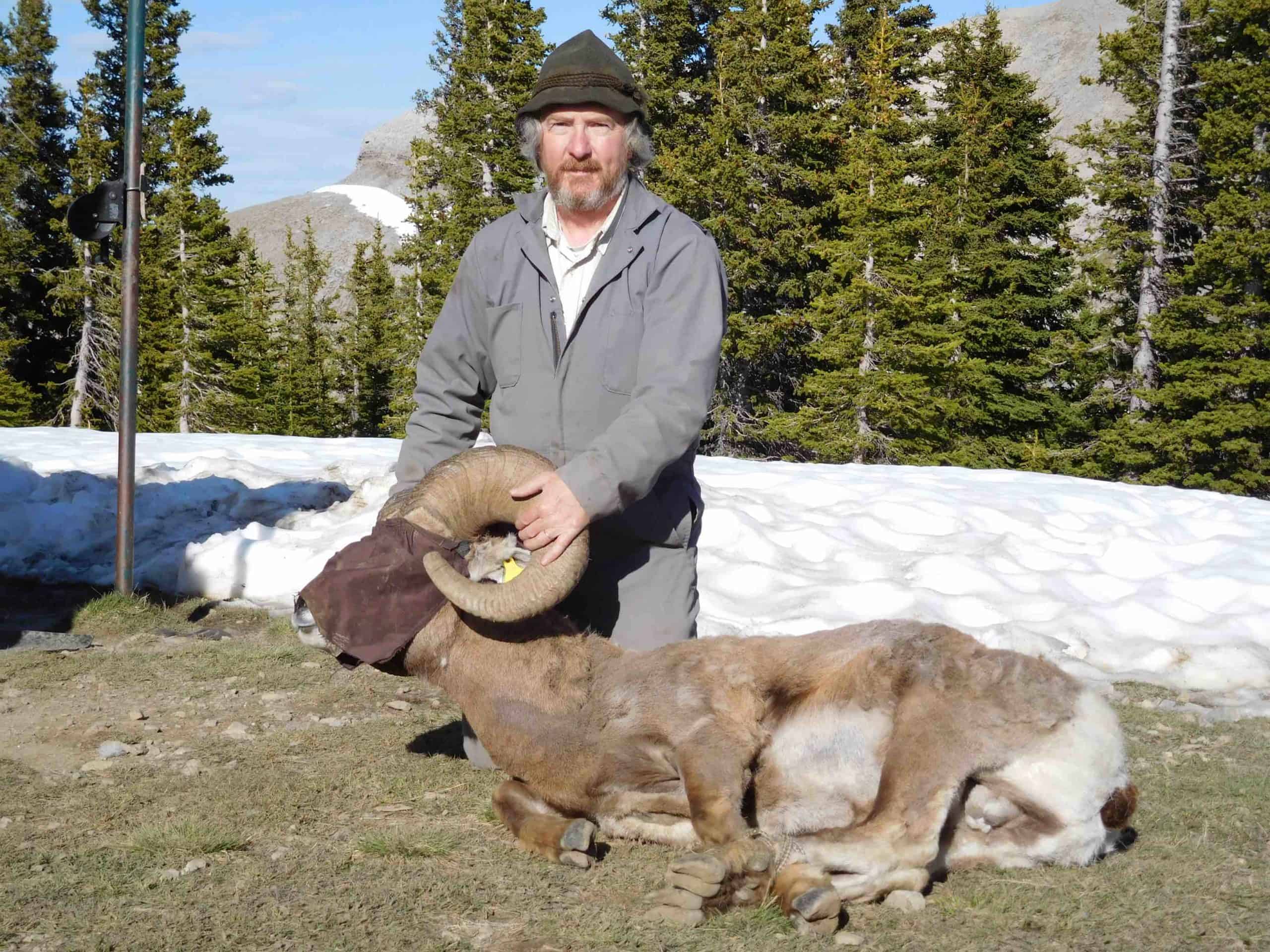
Festa-Bianchet with a bighorn ram in 2016. Credit: Courtesy Marco Festa-Bianchet
He has also collected long-term data on paternity of kangaroos, mountain goats and bighorn sheep, to learn more about population genetics. “Male reproductive success is rarely quantified for wildlife, but in our studies we know the fathers for 80-90% of the young,” he said. His bighorn sheep research, marking 1,1000 bighorns since 1972 in Alberta, has led him to learn that intense trophy hunting can have evolutionary consequences. That’s because regulations protect rams with small horns, which eventually leads to genetically smaller horns, he said.
He has also studied how population density, sex and age structure, body size, genotype, birth date and yearly changes in precipitation affect male and female kangaroos’ reproductive success.
Festa-Bianchet credits his graduate students for the success of his research. “It’s nice to get the recognition from the Canadian branch of The Wildlife Society,” he said. “It’s a way to recognize not just my work, but especially the work of my students.”
He added that his work follows a trend, as many past Ian McTaggart-Cowan Award winners were recognized for long-term monitoring of populations. “I like to think this is a recurrent thing we do in Canada,” he said. “We realize the importance of long-term ecological research. Two to three years of monitoring often are not enough to know what’s going on.”
Festa-Bianchet hopes his work continues after he retires, and he has already made sure some former students will continue his projects—at least three students are already continuing programs he is no longer involved in. “I hope the studies will continue. Some of them are becoming multigenerational.”
Header Image:
Festa-Bianchet handles the same kangaroo, female #3, in 2008, 2012 and 2018.
Credit: Courtesy Marco Festa-Bianchet



